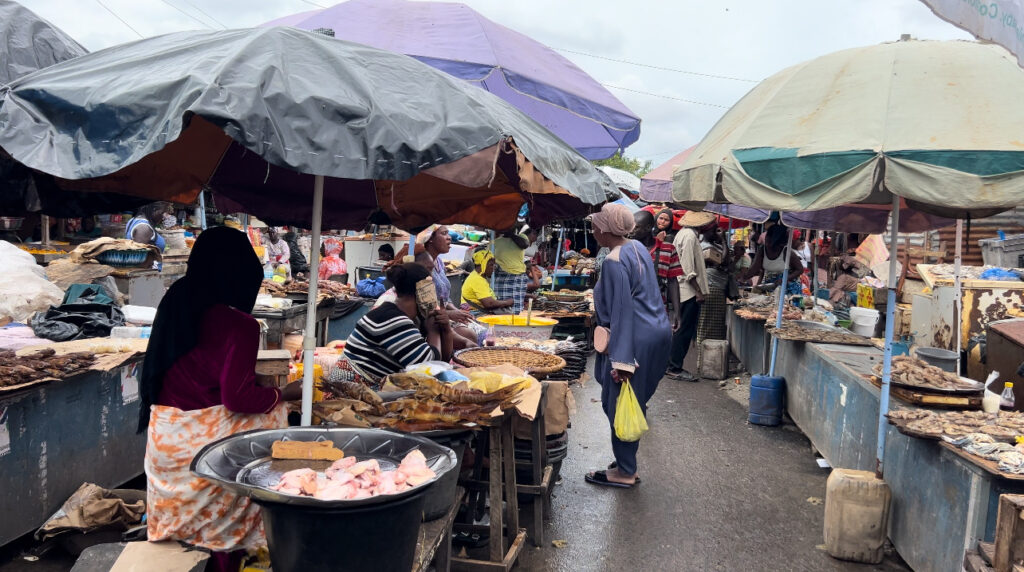
By Fatou Sillah
In the Busy Serekunda market, nestled in the heart of Kanifing Municipality, the sound of rain becomes a source of dread for many vendors as it means less sales for them. The market, usually filled with the noise of vendors and customers, becomes silent.
The heavy rains cause significant losses and damage for vendors, driving customers away and leading to a steep drop in sales. For these vendors, this means a drastic reduction in income as fewer people come to shop. They attribute the problem to poor infrastructure and an inadequate drainage system.
The market becomes muddy and extremely difficult to navigate, with stalls, shops, and goods exposed to the elements, resulting in substantial losses.
The rainy season turns the already challenging task of earning a living into an even tougher ordeal for struggling vendors, as the downpour spoils goods and deters customers.
Kerr Fatou recently visited the market to speak with female vendors who are persevering through the rainy season.
Fatou Bayo, a market vendor, voiced her frustrations about the conditions.
“When it rains, all this place becomes muddy, and our stalls are not organized. They should construct the market properly. This country belongs to all of us. When it rains, we don’t sell anything in this market, and it becomes very difficult for people to navigate,” She said.
Mariama Ceesay, another vendor at the Serekunda market, reports that the rain has significantly decreased sales.
“It is very difficult for people to come inside the market when it rains, they all stay outside. We suffer a lot in this market during rainy seasons,” She Said.
We spoke with Fatou Kumba Sanyang, who shared insights on how the rains impact their lives and the challenges they encounter.
“There is no proper drainage system; all the drainage systems are full. They should help us with that. We struggle a lot when it rains, they should also help us to build stalls to prevent us from the rains,” She said.
Mariama Mendy added her experience to the conversation.
“We don’t sell a lot during the rains, because most people are now selling outside and customers don’t usually come inside. When we say market, it should be one, but every junction is now a market. Waste is a problem in this market; water is also a problem; we are just here struggling,” She said.
